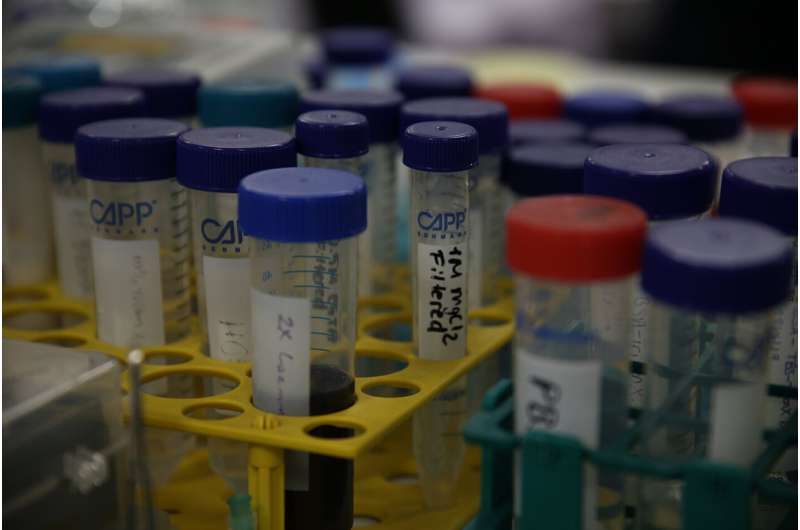Caught in the act: Proteins responsible for metastasis

Research by Assoc. Prof. Nurhan Özlü of Koç University Department of Molecular Biology and Genetics and her team, recently published in Molecular & Cellular Proteomics, has uncovered the effects of two proteins in the transition from the epithelial to the mesenchymal cell type, the latter of which has mobility. The identification of these two proteins will contribute to the development of new methods for preventing cancerous cells from transitioning into the mesenchymal cell type and being transported via blood to other organs and tissues.
Close to 90 percent of cancers in the human body are observed in epithelial cells. Özlü and her team began their research by studying more than 600 proteins to understand the roles they play in the transition from epithelial to mesenchymal cells.
When epithelial cells, which are immobile, stable and connected to other cells, turn into cancerous cells, they no longer want to be bound to their place of origin, and tend to metastasize in other areas. To do this, they have to be mobile. They abandon their epithelial origin, which gives them the characteristic of "stability", and transition into the mesenchymal cell type, which gives them mobility and allows them to metastasize. With this newly gained mobility, they can be transported to other organs and metastasize, where they can "change their identity" once again and turn into their original epithelial state.
To understand this mechanism, Özlü and her team took human breast epithelial cells and by using one of the transition factors that play a role in epithelial-mesenchymal transition and control gene expression, they turned the cells into mesenchymal cells. Next, they built a profile of the protein differences between the epithelial and mesenchymal states of the same cells. Narrowing down the proteins to 20 at the end of their research, they observed that some proteins were very dominant in the epithelial state, whereas others were dominant in the mesenchymal.
Focusing on the proteins DNAJB4 and CD81 that showed an increase in the mesenchymal state, the team injected cells, in which the expression of these two proteins was suppressed, into mice. The tumor sizes in the animals who were injected with the control cells were significantly larger than those who were injected with the cells with the two suppressed proteins.
The results of this research, which created new and important possibilities in cancer research, are open to all researchers. Particularly with drug targeting studies in which the surface protein CD81 will be used, drug combinations that can reduce metastasis can be produced, or the undesired chemotherapeutic effects of cancer drugs such as hair loss or neural damage can be eliminated.
Özlü and her team now intend to test these findings clinically and find out whether they apply exactly to human cells as well.
More information: Zeynep Cansu Uretmen Kagiali et al. Systems-level Analysis Reveals Multiple Modulators of Epithelial-mesenchymal Transition and Identifies DNAJB4 and CD81 as Novel Metastasis Inducers in Breast Cancer, Molecular & Cellular Proteomics (2019). DOI: 10.1074/mcp.RA119.001446
Journal information: Molecular & Cellular Proteomics
Provided by Koc University
















